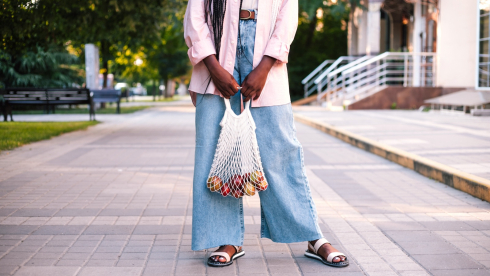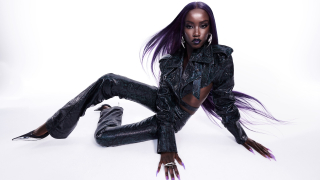Doulas are the welcoming committee to childbirth, modern-day midwives in the African tradition. Josie Pickens explores the grand tradition.
As far as I’m concerned, there is always country for Erykah Badu, whether she’s blowing us away with her genre- and spirit-shifting music, keeping it real by admitting what we all know about the state of hip-hop, or reminding us that reading is fundamental by clapping back at disrespectful detractors on social media. My favorite side of the entertainer, however, is when she speaks about doulas and natural birth. In an interview last year with Origin magazine, Badu opened up about why she became a doula:
“I kind of felt like, I like being the welcoming committee. I just continued to be present at different people’s births, and I started studying on my own, different techniques, and the variables of what being a doula is about. I learned to originally be like water, in the place that I was, so that I could be a container for whatever they need. I love being of service in that way. I’m an official doula, and I am working to get my midwifery license right now.”
I’m particularly attached to the natural birth narrative because I have “baby catchers” in both my maternal and paternal familial lines. I know that home births and midwifery aren’t for everyone. But I do believe the work of doulas is exceptionally important, a mostly forgotten aspect of the healthy pregnancy and birth story—a part that many Black women have forgotten are a significant part of our history.
So what is a doula, exactly? According to DONA International:
“The word ‘doula’ comes from the ancient Greek, meaning ‘a woman who serves,’ and is now used to refer to a trained and experienced professional who provides continuous physical, emotional and informational support to the mother before, during and just after birth; or who provides emotional and practical support during the postpartum period.”
Doulas are essentially “team mommy” personnel. Their only responsibility is to assist mothers with being comfortable, safe and aware during the birthing process. Also, because doulas have birthing experience and training, they ensure that mothers-to-be are well informed about all that happens before, during and after giving birth. (Trust me, as a mother who had a very difficult pregnancy, there is a lot to know. It’s overwhelming how much.)
Giving birth can be a difficult, frightening experience, especially for first-time mothers and mothers who experience complicated births. A lack of knowledge, and the nervousness and stress that comes during labor and delivery, can make giving birth extremely tedious and complicated.
An extremely interesting aspect of doulas and Black women is the perception that it’s a ‘White granola’ thing to do. At one point, most of the midwives in the U.S. were Black.
Having a doula hold a mother’s hand, interact with medical staff on her behalf, and help her breathe and push—all while providing patience, information and instruction—can definitely make the birthing process less difficult, briefer and safer. Less difficult births mean healthier babies and mommies, and that is the power doulas offer the world.
I thoroughly enjoy reading tweets from @thepbg (a.k.a. Cashawn Thompson) as she chronicles her life of caring for young children. Thompson is also a practicing doula. When I asked her why she chose to take up the practice, she said, “We are living in a time where a lot of pregnant women find themselves alone and without a partner during pregnancy and birth, for any number of reasons and personal choices. That doesn’t mean they don’t need support. Doulas provide educational and emotional support during pregnancy and birth, which is empowering and absolutely necessary. It sets the tone for how one sees herself in the role of a parent, how effective she can be and how she will eventually parent her child.”
Some may ask, if being a doula is such a benefit, why have Black women shied away from the practice?
Freya Morani—doula, breast-feeding educator and creator of rootmama.org—believes Black women have disconnected from their ancestral attachment to midwifery and doulaing. “An extremely interesting aspect of doulas and Black women is the perception that it’s a ‘White granola’ thing to do,” she says. “Black women don’t know their legacy of midwifery and birth assistance. At one point, most of the midwives in the U.S. were Black. We’re far removed.”
As a doula, Morani says she’s dedicated to serving Black families, particularly Black mothers, who are up to four times more likely than White mothers to die from complications during child birth.
Looking back, I wish I’d have enlisted the services of a doula during my pregnancy and birth. It might have alleviated some of the stress I experienced as a first-time mom. If I decide to give birth again, I’ll surely have a doula by my side.
Josie Pickens is an educator, cultural critic and soldier of love. Follow her musings on Twitter @jonubian.













